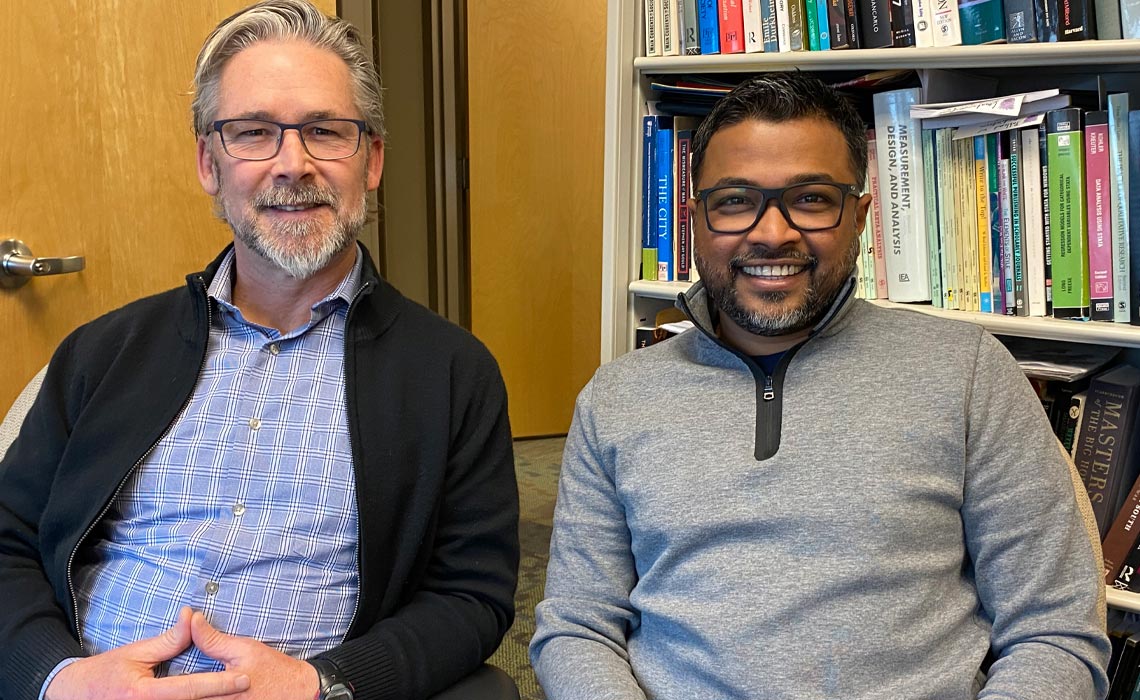What does desire for alone time tell us about parenting equality?

Anyone with children can likely relate to the wish for some alone time, but who feels that they need more, mom or dad?
A recent study from a trio of researchers including two MRU professors found that higher levels of responsibility faced by mothers of young children led to a greater desire to spend time alone as compared to fathers.
“Historically, mothers have been doing the lion's share of household work, including child care. Since the 1960s, with changes in child-care policies, more fathers started to take parental leave and contribute to the caring for children. Nevertheless, there is still a significant gap in child care among Canadian parents,” says Dr. Tom Buchanan, PhD, a professor of sociology at MRU, who undertook a study into the topic with Dr. Anupam Das, PhD, an MRU economist, along with Dr. Adian McFarlane, PhD, an associate professor of economics at King’s University College, Western University.
Buchanan and Das connected as presenters at a 2013 International Statistics Day conference held at MRU. This soon led to collaborating on interdisciplinary research combining elements of sociology and economics.
Since then, they have examined the gender gap in child care among educated and working parents. They also studied how the gender gap in parenting time is related to the Canadian gender income gap, gender differences in perception of work-life balance, and the gender gap in hours spent working in the labour market.
For the recent study, the researchers used Statistics Canada’s Time Use Survey data to analyze gender differences in desired alone time and how these differences are impacted by the gender gap in parenting time for Canadian parents. The dataset used in the study contains 1,120 observations. Using cross-sectional analysis, they found that more than half of mothers with young children report desiring more alone time compared to about one-third of fathers. They also found that mothers' desire for more alone time went up as their parenting and household labour time increased.
Desire for solitude not selfish, but of service
Health is an important determinant of long-term economic growth. The researchers point out that psychology literature has found less alone time is associated with agitation, chronic stress, fatigue and, in general, harmful impacts on mental health.
“A deficiency of alone time among parents, particularly mothers, can impact their well-being, labour market productivity, and, by extension, economic prosperity in the long run,” Das says.
The well-being and equality practised by parents also profoundly impacts children's work and family expectations. This is important as children age, enter relationships, start families and contribute to the economy as workers.
“We believe that society has a critical role to play in expecting the equitable contributions of fathers, who must take initiatives in parenting time that fully allow mothers to experience alone time in ways that build personal resources. This includes freedom from parenting including the co-ordination of parenting-related tasks,” Buchanan says.
“This must happen at the level of intentional conversations in the household. If fathers contributed equally to parenting, household and cognitive labour, it would likely reduce mothers’ desire to be alone.”

In terms of public policy, the researchers argue that “it is not enough for parental leave to be available to employees. Employers need to mandate or at least set an organizational expectation that fathers will take leave.” They cite research from MRU human resources professor Dr. Rachael Pettigrew, PhD, which shows many fathers do not always take advantage of parental leave even when available.
With the gender gap in parenting time not likely to go away any time soon, Buchanan and Das say they will continue to explore this topic as new national-level data becomes available.
“We are always looking for ways to explain how inequities in families impact different aspects of life,” Das says. “We would like to explore how different configurations of families and parenting arrangements may offer new insights in this area. More generally, one continual contribution of our research is to shed light on the persistent inequities mothers face.”
Read more about Economics, Justice and Policy Studies, and Sociology at MRU.
Read more about Research at MRU.

